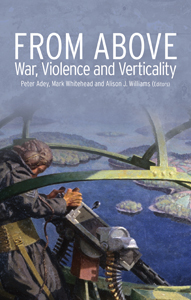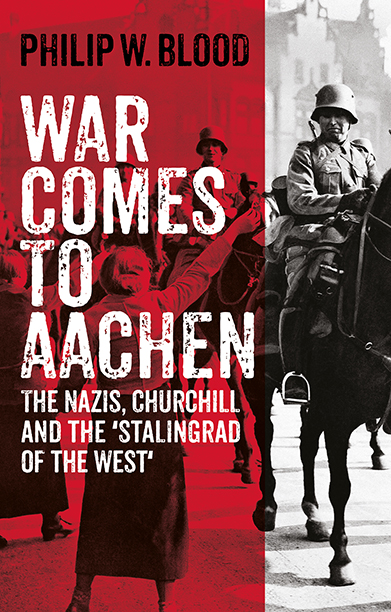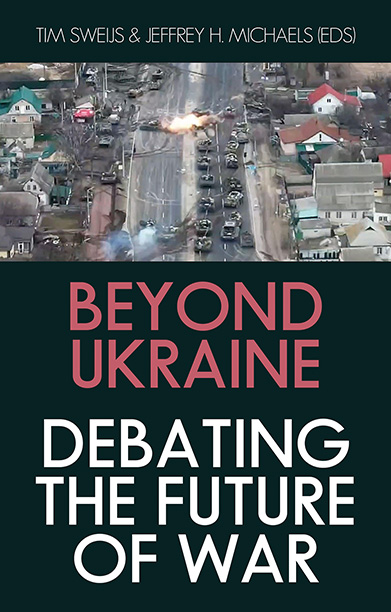Description
The arrival of the aerostatic balloon at the end of the nineteenth century ushered in a new perspective on the battlefield, taking over from the mount—the hill at the edge of the field of combat—and the fortified tower positioned within it. Since then there has been no perspective more culpable in war, violence and security than the aerial one. From Above explores the aerial view in new depth and clarity. It draws in vivid detail on studies of the aerial perspective today and on rich empirical investigations of the aerial view from the past. Chapters examine a range of case studies and examples, from Vietnam and the balloon prospect, camouflage, colonial policing, to today’s drone wars. The contributors draw on perspectives from history, international relations, political geography and cultural studies in order to provide a truly interdisciplinary perspective on the view from above. They also consider the view from above in relation to its technologies, legalities, practices, doctrines, and visual culture.
Among the contributors are renowned international experts such as Derek Gregory, Trevor Paglen, Caren Kaplan, Klaus Dodds and Priya Satia.
The aerial view is a perspective that can no longer be ignored, one that is of growing significance for those interested in geopolitics, militarism and conflict.
Table of contents
Editors and Contributors
List of Images
Introduction: Visual Culture and Verticality — Peter Adey, Mark Whitehead and Alison J. Williams
SECTION ONE: SCIENCE, MILITARISM AND DISTANCE
1. The Balloon Prospect: Aerostatic Observation and the Emergence of Militarised Aeromobility — Caren Kaplan
2. Lines of Descent — Derek Gregory
3. Aerial Surveying, Geopolitical Competition and the Falkland Islands and Dependencies Aerial Survey Expedition (FIDASE 1955–7) — Klaus Dodds
4. Networks, Nodes and De-Territorialised Battlespace: The Scopic Regime of Rapid Dominance — Martin Coward
5. Photomosaics: Mapping the Front, Mapping the City — Paul K. Saint-Amour
SECTION TWO: AERIAL AESTHETICS, DISTORTION AND THE VIEW FROM BELOW
6. ‘Concealing the Crude’: Airmindedness and the Camouflaging of Britain’s Oil Installations, 1936–9 — James Robinson
7. Flying into the Unknown: Cinematic Cultures of War and the Aesthetics of Disappearance — John Armitage
8. Project Transparent Earth and the Autoscopy of Aerial Targeting: The Visual Geopolitics of the Underground — Ryan Bishop
9. AFP-731 or The Other Night Sky: An Allegory — Trevor Paglen
SECTION THREE: FROM CLOSE TO REMOTE
10. The Pain of Love: The Invention of Aerial Surveillance in British Iraq — Priya Satia
11. Targeting Affective Life From Above: Morale and Airpower — Ben Anderson
12. Ecologies of the Wayward Drone — Jordan Crandall
13. Satellite Images, Security and the Geopolitical Imagination — David Campbell
Notes
Index
Reviews
‘Being above — using aircraft to loiter within the atmosphere or on the edge of space — has long been recognised as a definitive means of gaining military and strategic advantage over those bound by the earth’s surface. The last century has witnessed countless episodes of annihilation and killing by states and militaries from up in the sky. But how can we approach the deep connections between verticality, violence and war? From Above — a dazzling and definitive collection — provides the answers. Bringing together the very best thinkers from Geography, Cultural Studies, Art Theory and Political Science, the result is an extraordinary and searing book. Here, for the first time, is a volume which fully excavates how targeting and killing from above was invented, generalised and rendered completely normal in the past century and a half. A must-read for anyone concerned with the nature of contemporary political violence.’ — Stephen Graham, Professor of Cities and Society, School of Architecture, Planning and landscape, Newcastle University
‘Packed with historical knowledge and theoretical insights, this collection opens our eyes to the metaphors and technologies embedded in the most ordinary expressions such as above, below, depth, flight, earth, and sky. In chapter after chapter, the aerial view presents itself not only as a militaristic space and a geopolitical theatre but also — and above all — as a conceptual event in modernity.’ — Rey Chow, author of Entanglements, or Transmedial Thinking about Capture
‘From Above Is a remarkable collection of essays on an important and neglected topic. The chapters range across time and space, covering a great deal of terrain and building up a multi-layered account of empirical and historical detail. The collection as a whole develops a new theoretical vocabulary to thinking about the politics and geographies of the vertical.’ — Stuart Elden, Professor of Political Theory and Geography, University of Warwick
‘Bombings and assassinations meet with surveys and cartography in this collection of critically engaged essays on the combined force of aerial knowledge and aerial power. Offering a much-needed counter to the official line on air power, the volume spells out the extent to which reconnaissance and violence operate in tandem — from above.’ — Mark Neocleous, Professor of the Critique of Political Economy, Politics and History, Brunel University
Editor(s)
Alison J. Williams is Lecturer in Human Geography at the school of Geography, Politics and Sociology, Newcastle University and the author of numerous articles on ‘vertical geopolitics’.






